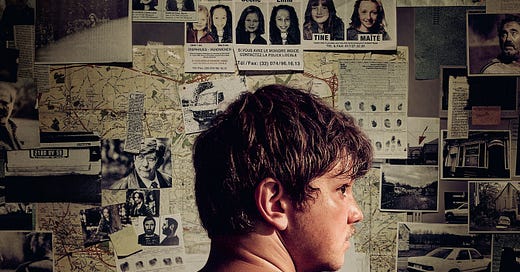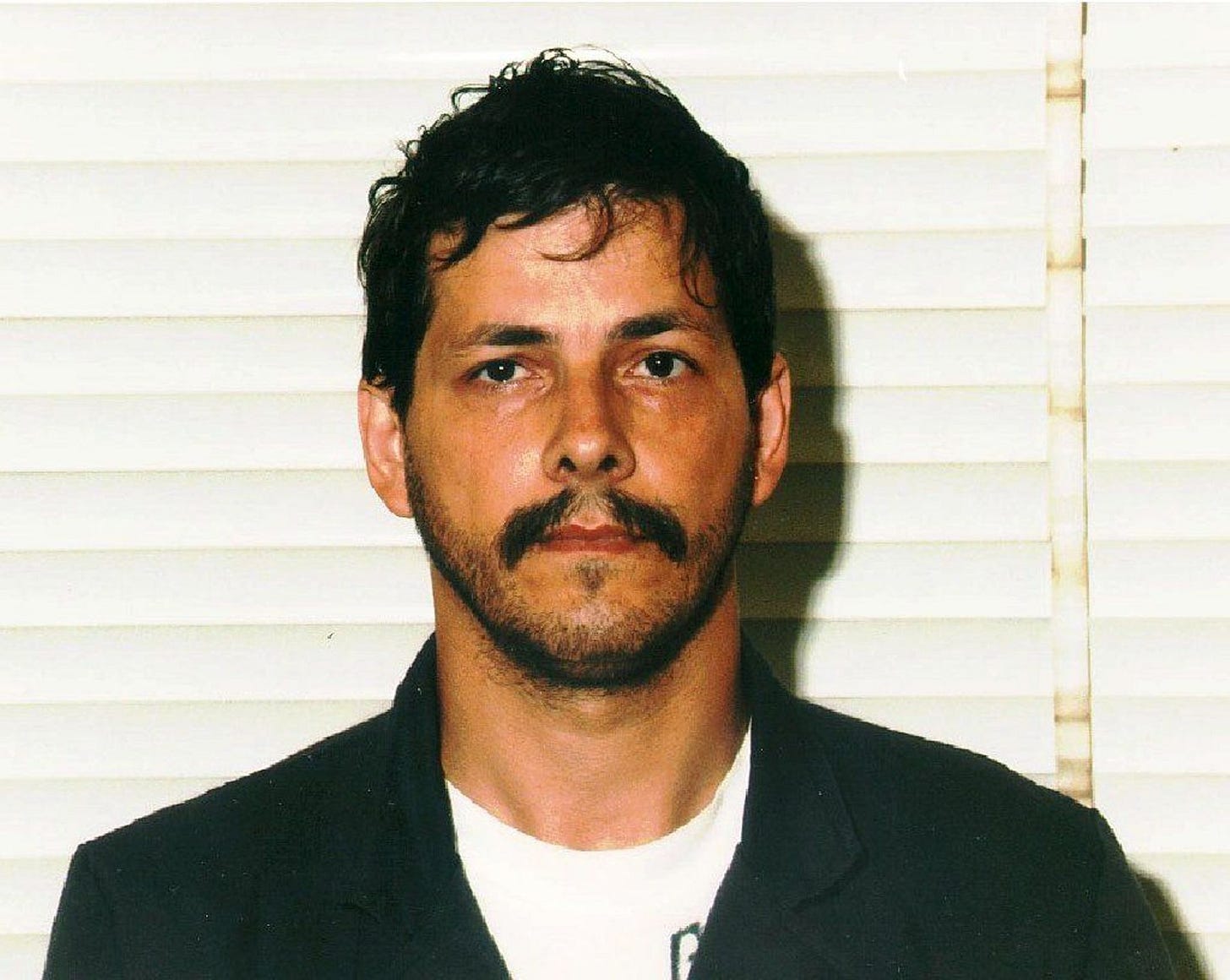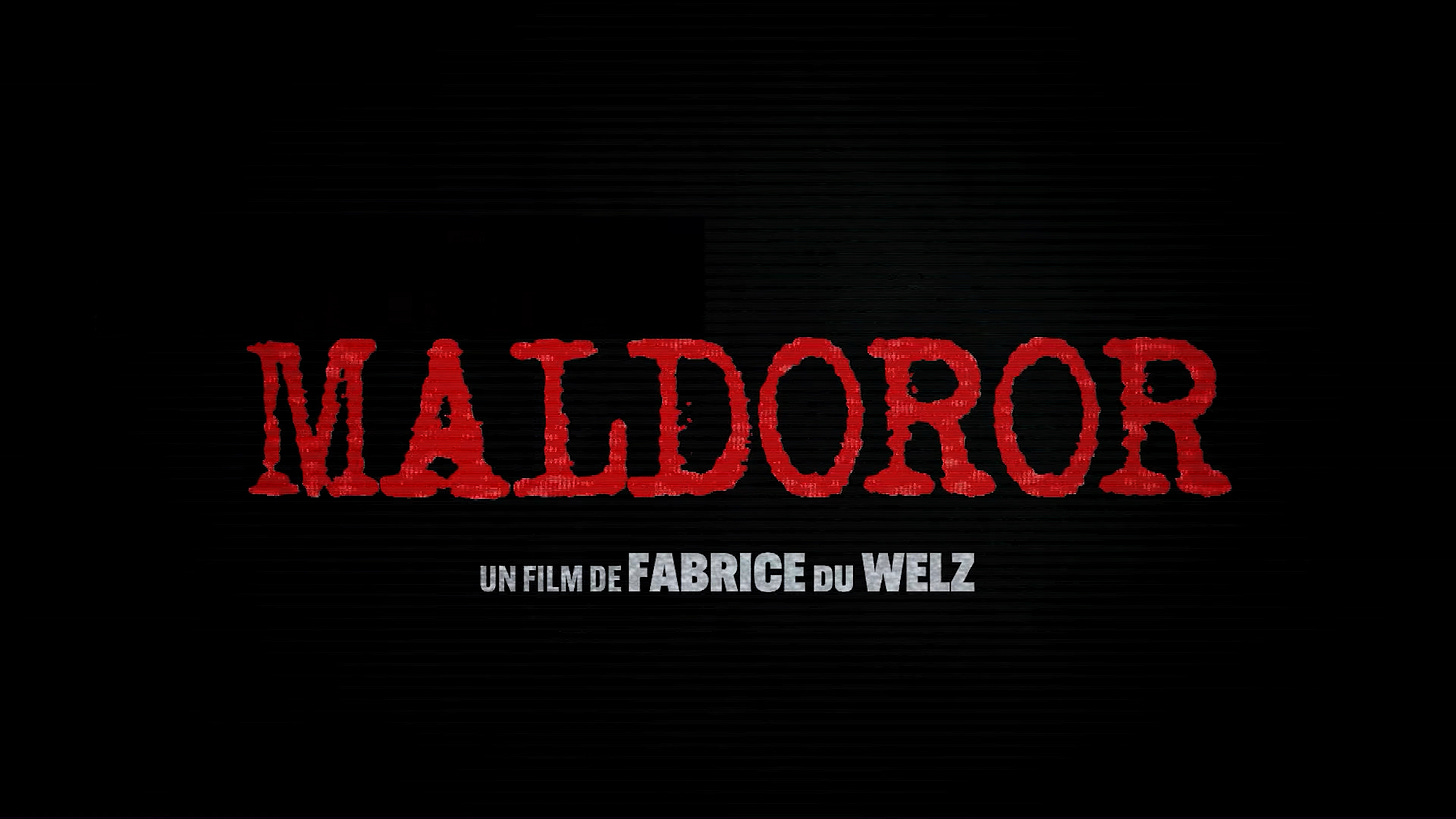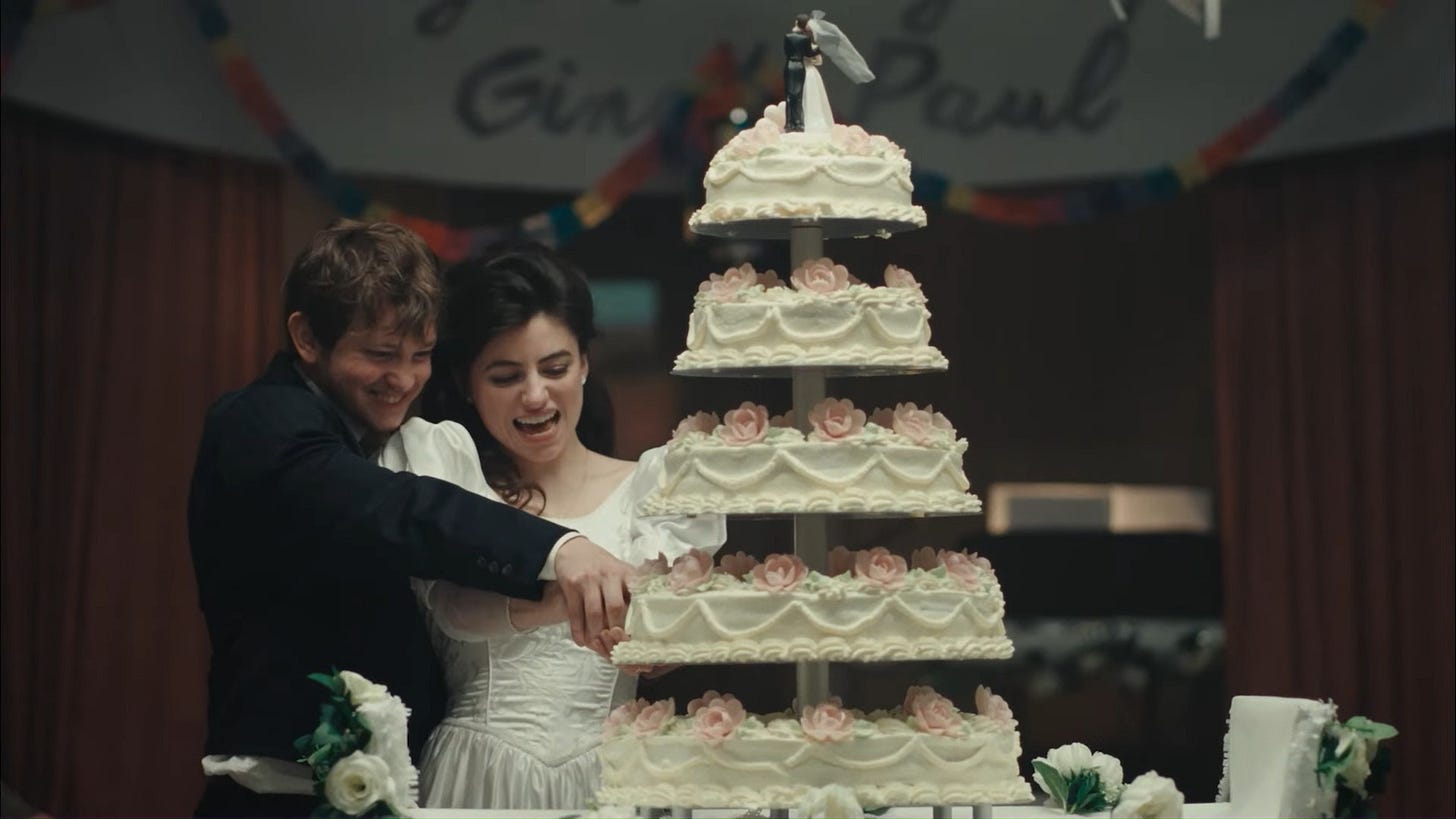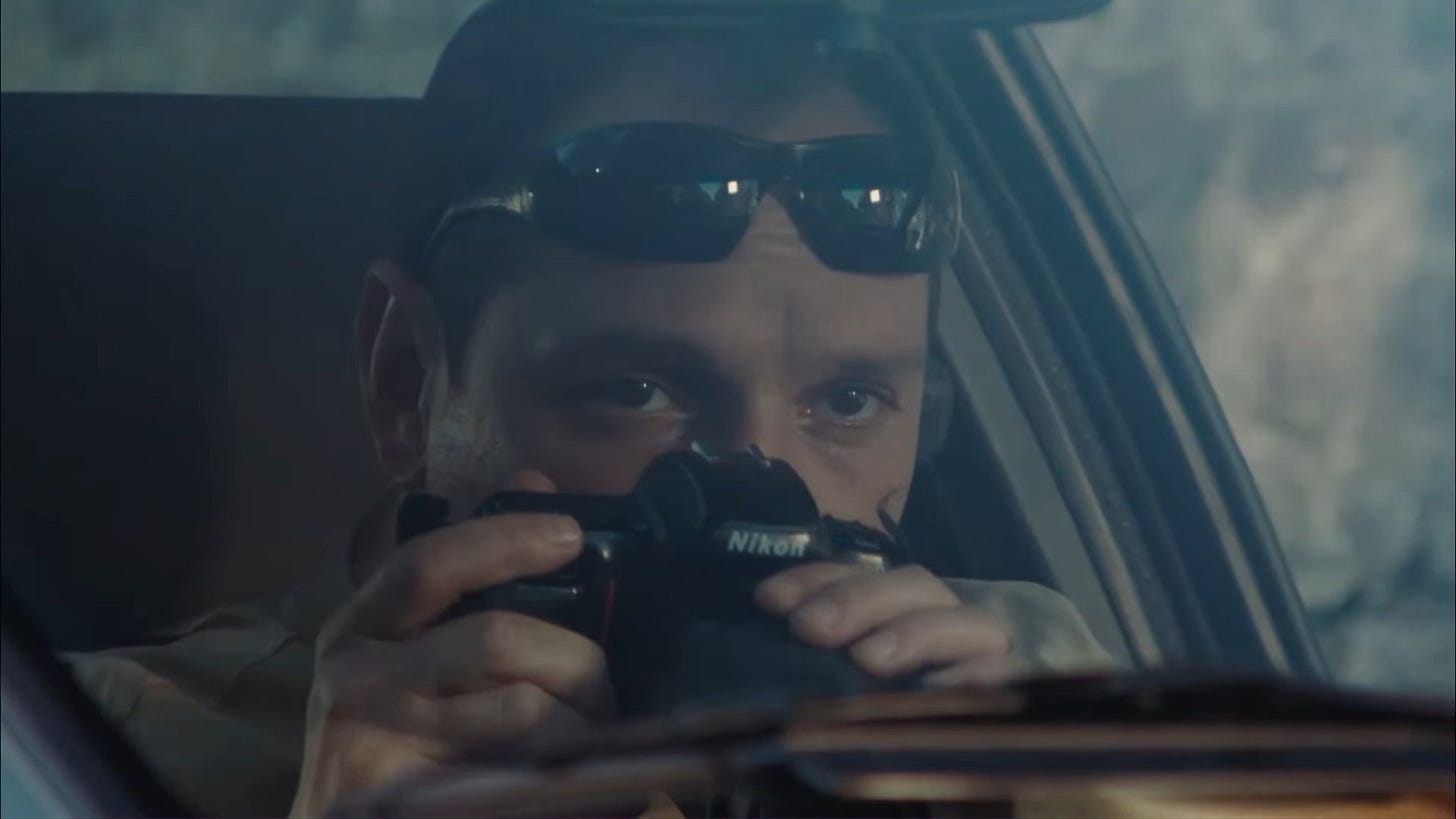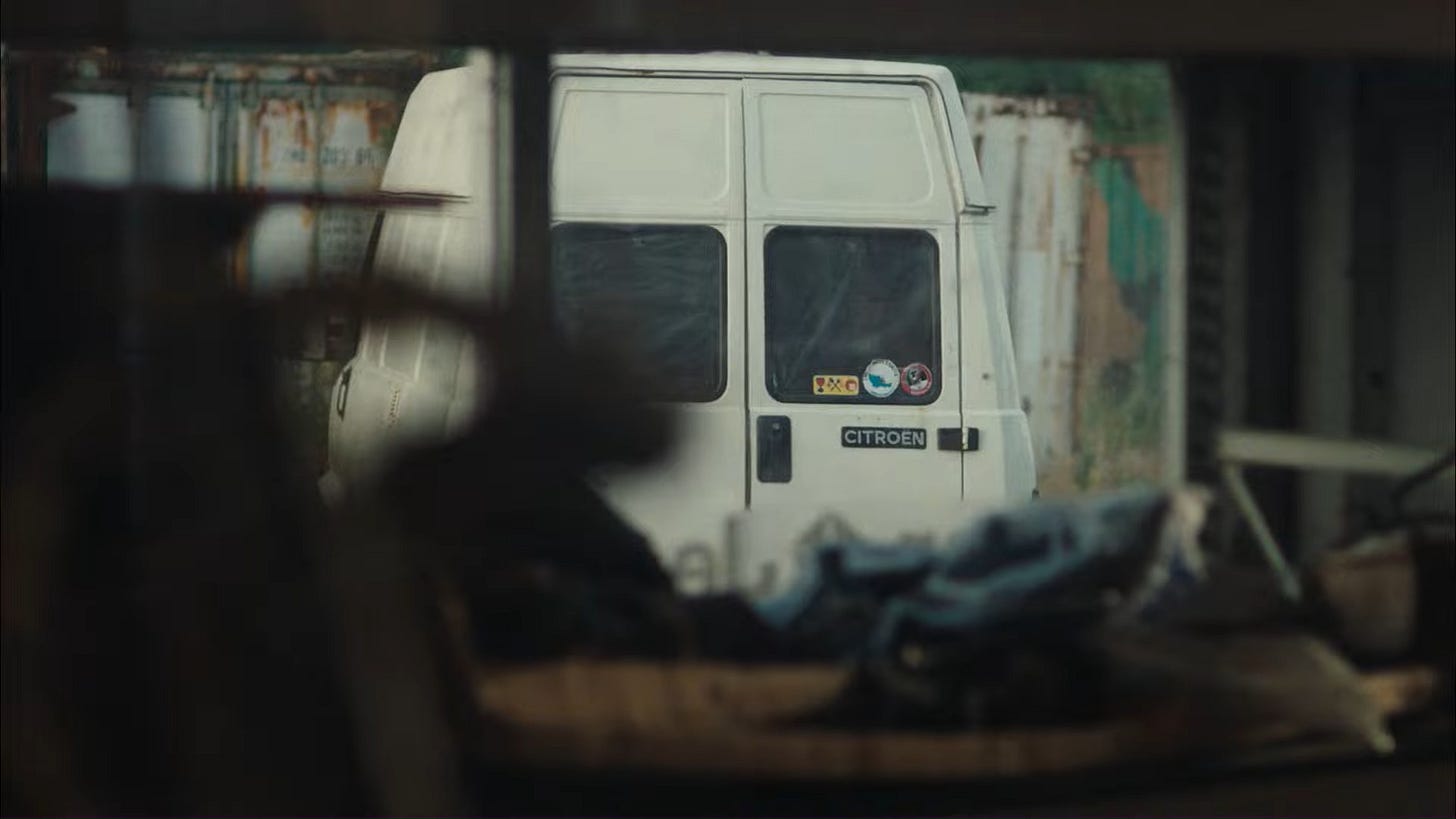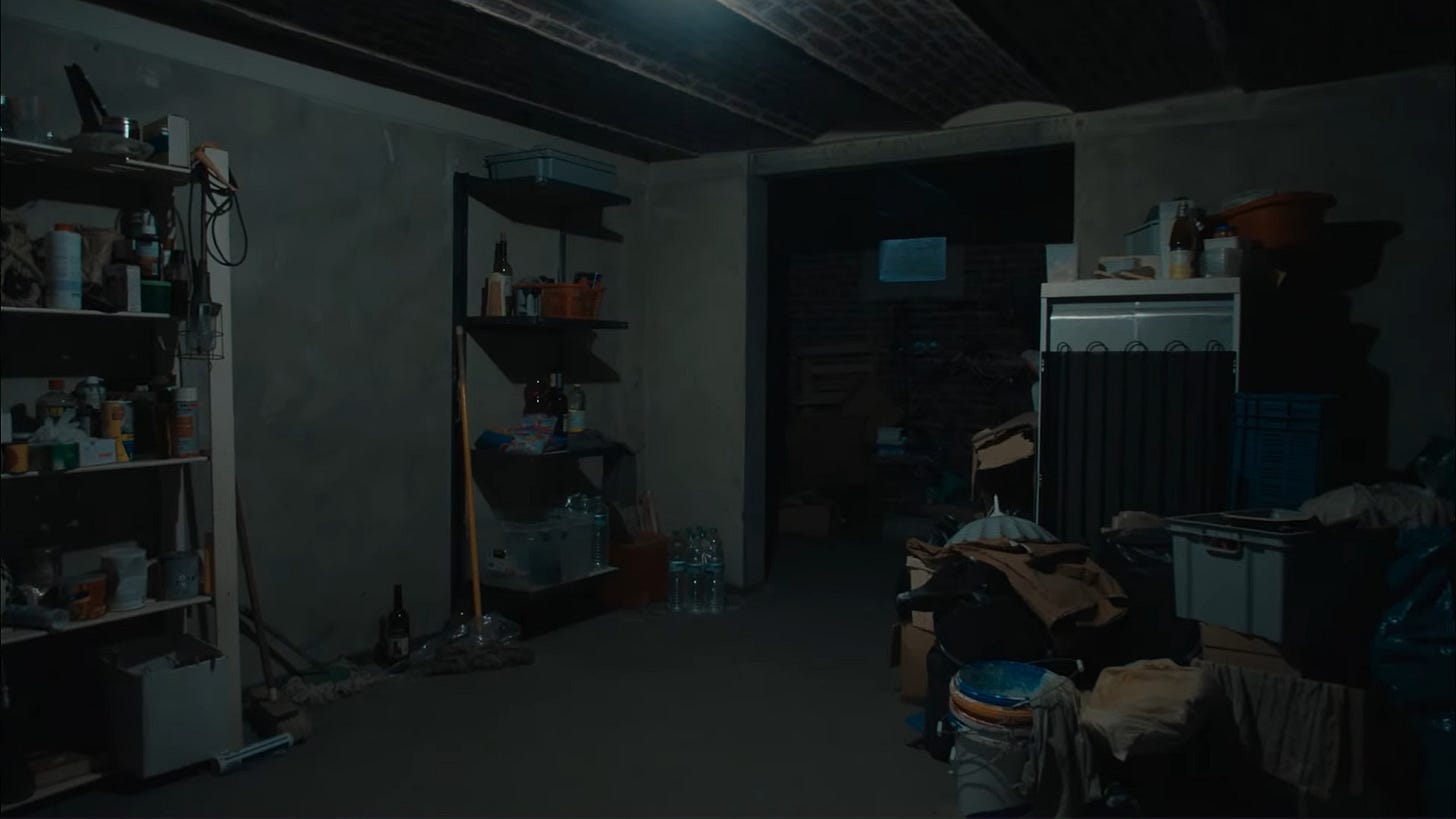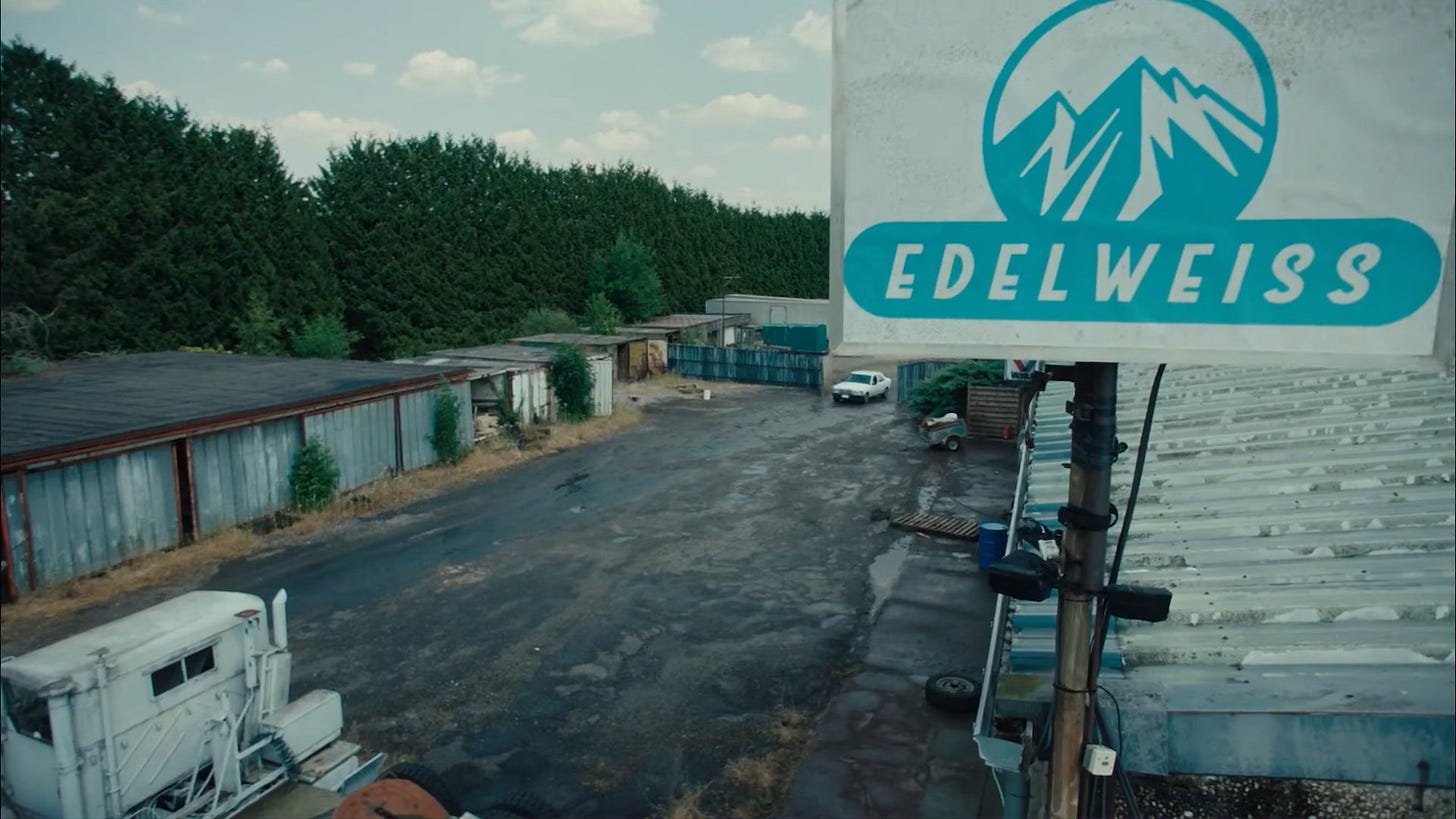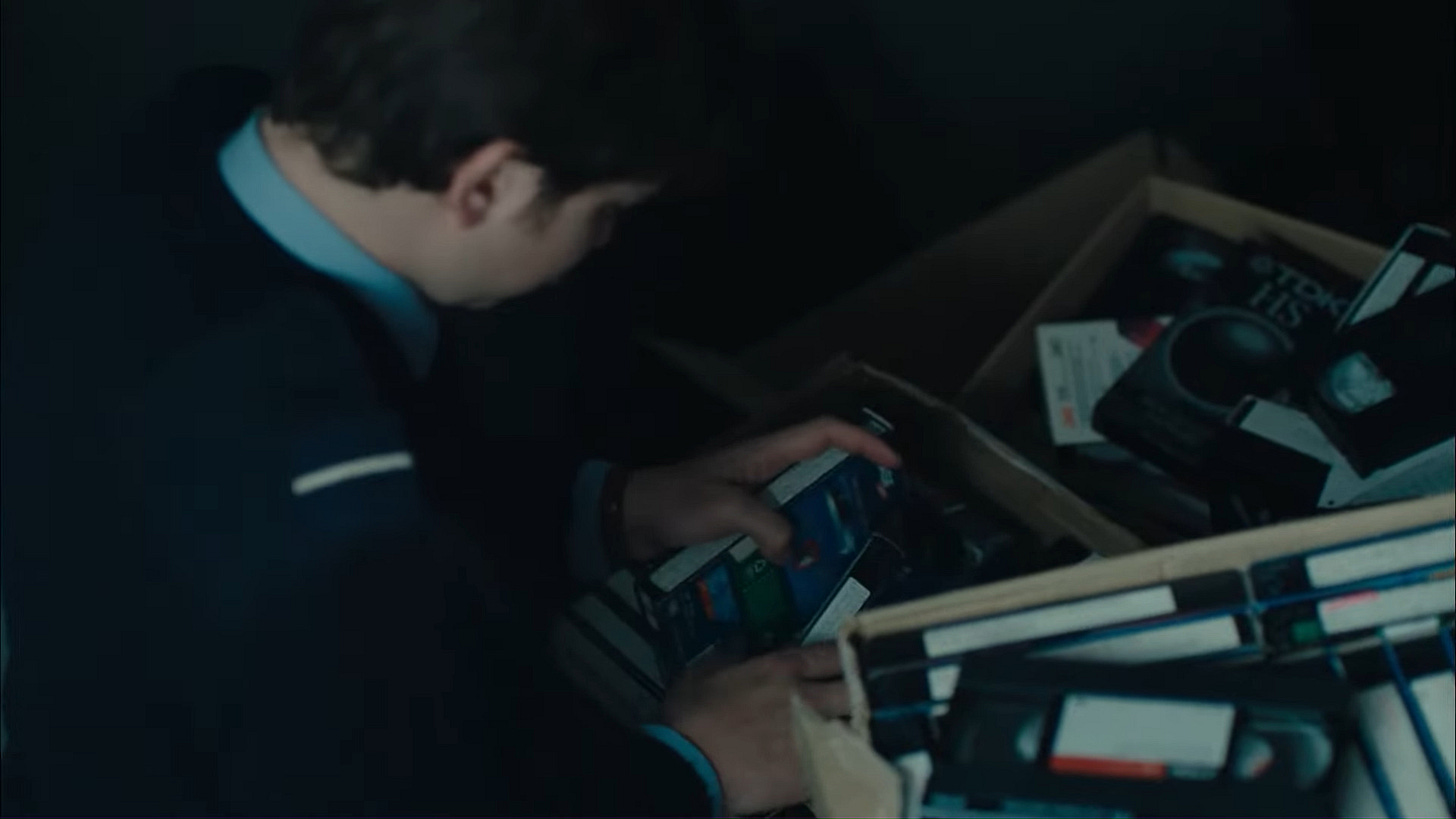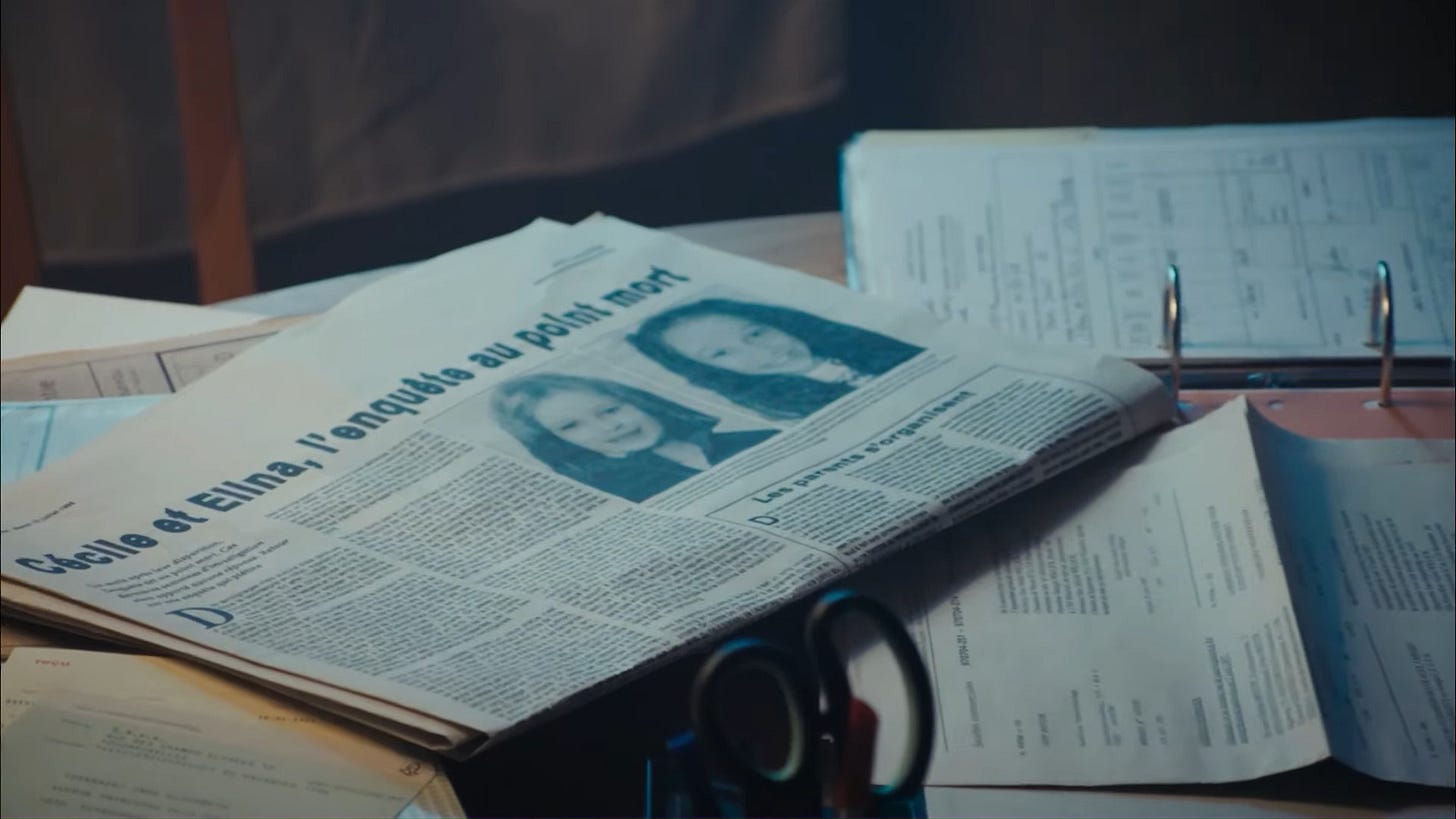MOVIE REVIEW - Maldoror (2025), directed by Fabrice Du Welz
Following a festival release in 2024, Maldoror is finally releasing to the public this January - Here's what I thought of the movie based on the Dutroux affair. [MINOR SPOILERS AHEAD]
Small note before we start. While writing this, I’ve realized I’ve never properly taken the time to introduce myself. You can call me Nick – I’m from Belgium and I’m an user on Twitter known as @IRC_NIC, where I’ve mostly been posting about Belgian cases related to “parapolitics” (for lack of a better term), the most popular ones being the Brabant Killers and the Dutroux affair. I’ve started doing so after growing up trough the ambient remnants of both cases. But my current obsession about these and other cases only started after I took the time to dive deep and read almost all of what was published on them, and ever since, I’ve tried bringing forward elements that are often missing from the rather small collection of books, writings and articles available in English. I’m by no means an expert or even a professional writer, I’m doing my own thing, so that means you’ll see the occasional typo, or you’ll hear the usual mispronunciation, but I have tried to bring to light a more complete version of these Belgian cases to English speaking people who are interested in them, as well as shaping out my theories and giving my own perspective as a Belgian.
The Dutroux affair is one of these cases known worldwide, who built Belgium’s reputation as a “paradise for perverts”, a country full of pedophiles. You don’t have to take a particular interest in crime or parapolitics to even hear about it. The sheer cruelness of the acts committed really speaks for itself. Images of the White March (seen in the video below, around the 1mn mark), organized by parents of the victims, the biggest demonstration in Belgium since the protests against American/NATO nuclear missiles in the 80s, shocked everyone around the world. I won’t be getting into the details of the case since I assume that if you’re reading this, you’ve heard about it before. Matt of Ghost Stories For The End of the World did a wonderful podcast series (The Belgian X Files) on Belgium, including the Dutroux Affair, and I had the honor to appear as a guest. I’d recommend listening to the Dutroux episodes if you’re not familiar at all. This goes for potential viewers of Maldoror too, which is fully appreciated when you can notice the attention put to details related to the case in the movie.
Growing up as a kid after the Dutroux affair in Belgium, you could tell parents were on edge. You couldn’t go out alone on your bike like your older siblings did. Everyone was nervous at the sight of a white van. I remember hearing from teachers in class that we should never speak to strangers on the street, no matter what. Nobody but our parents should be picking us up after school. If someone tries to get you into a vehicle, even if they seem nice or they offer you something, you call the teachers over immediately, or you draw attention to yourself, you scream. That all seems almost banal today, simply paying attention to your safety, but after what Belgium went through in 1996, there was a certain obsession of stopping it from ever happening again. Something had changed forever. The nation was in a sort of limbo for almost a decade. Kids would tell themselves scary stories at recess like they did everywhere on Earth - except here the boogeyman had a name : Marc Dutroux. He was in jail now, but you could still feel his presence lurking everywhere. In the shadows. Every abandoned or sketchy looking house on your way home on the bus was a possible hideout for him, his ghost. And then when you’re on a trip somewhere, visiting family or just on the road, you could literally run into one of the houses owned by Dutroux, by accident. Just driving around and suddenly you’re in front of a place where children and people died. It was still there, standing. It’s part of why nobody could ever forget.
Belgium was haunted.
This is in my sense the exact feeling that the director of Maldoror, Fabrice Du Welz (Calvaire (2004), Message from the King (2016), and more), experienced as well. In the years following the arrest of Dutroux in 1996, Belgium went through a parliamentary inquiry and a lengthy, almost useless (at this point) investigation after the useful police elements who dreamed of one day establishing the truth and bringing it to the population and the victims were carefully plucked one by one off the case, until all that was left were people who didn’t even want to entertain the hypothesis of a pedophile and CSAM [Child Sexual Abuse Material] network linked to Dutroux and associates. By the time of his trial, in 2004, Dutroux was largely seen as a lone wolf, a predator who acted on impulse. A promise was made to investigate all other leads as part of another trial, in what was called the “Dossier Bis”. But that of course never happened. Marc Dutroux was in jail, probably for life, Michel Lelièvre and Michelle Martin would go too, but Michel Nihoul, perhaps the most important person along with Dutroux in this whole case, was let off the kidnapping charges, and only faced drugs related charges. And there it was - the end of what was called the Dutroux affair. It would slip into the unconscious for the years to come. Don’t even think of bringing up the X Files and the story of Regina Louf or you’d be forever cataloged as a deranged conspiracy theorist. But Belgians couldn’t help but wonder if there was more to it. There was a really bitter aftertaste of unfinished business, and this haunting, lingering feeling. This is what captured Fabrice Du Welz’s imagination, in my opinion. And this is what probably drove him to make this movie : Belgium needed a sort of mass exorcism after being haunted and fed lies for the past 30 years.
Maldoror is described by Du Welz as a paranoiac police/politic thriller, a movie about a man and his obsession, an obsession who might end up destroying him. This man is Paul Chartier, a young gendarmerie officer in Charleroi, who is soon to marry his girlfriend, a Sicilian girl named Gina. The two of them met in a library while studying, Paul noticing her from afar and pretending to pick up books in the aisle behind her so he could chat her up. The fact that Gina’s family is Sicilian is not a small detail, we get to meet and greet all of them, they are a major part of this story, and the history of Sicilian and Italian people settling in Belgium is very much based on reality. During his Q&A after my screening, Du Welz explained that before shooting the movie, he would walk around the streets of Charleroi to look for inspiration. That’s when he found this small religious Sicilian community who invited him over for mass and then to have a coffee and share cake. Du Welz immediately felt the need to include such an authentic part of what was and still is life in Belgium in the picture he was trying to paint of Charleroi. The wedding scenes of Paul and Gina were filmed at the place Du Welz stumbled upon, with the locals serving in as extras. These scenes of everyday, mundane life are obviously there clash with the rest of the dark tone of the movie, as we see Paul and Gina’s relationship degrade as Paul gets sucked into the case.
Chartier is young, a very young police officer and man. He enlisted in the gendarmerie to basically avoid becoming his dad, a gangster, an absent father who’s now spending the rest of his life in jail. He is also detached completely from his mother, a prostitute - until she crashes back into his life a little later on in the movie when he gets married. Chartier is full of energy. If he became a cop, it’s to change things, and not sit on his ass like all his gendarmerie colleagues are. And so when an informant shows up at the gendarmerie station to talk about a man who told him he could make good money off kidnapping little girls, Chartier’s ears perk up immediately. Two young girls were just kidnapped earlier that month. Chartier looks up the man the informant told him about, Marcel Dedieu (based on Marc Dutroux), and he quickly finds out the man is a notorious pedophile, on conditional release from jail. The informant tells him that Dedieu also has been working on his basement for the past couple of years, that it’s really odd, probably something to do with the kids. Chartier immediately tries to present this new information on Dedieu to his gendarmerie superior, who, to his surprise, stops him in his tracks and tells him that he has been keeping an eye on Dedieu. The gendarmerie is planning to start a surveillance operation on the same Marcel Dedieu. He’s an obvious suspect for the two kidnapped girls, given everything that they know of him, and Chartier’s superior is utterly convinced that catching this guy will help the gendarmerie shine again, especially amongst the current context of “police war” between Belgium’s police forces, the Police Judiciaire, the Gendarmerie, and the smaller Police Communale. It’s sort of hinted that Chartier’s superior, Charles Hinkel, made a name for himself during the Brabant Killers era (he was assaulted in a supermarket and has an eye patch) of the 80s, a not so particularly bright moment for the gendarmerie service, who basically failed at every step in the Brabant Killers investigation and was even perhaps even involved in some of the events... But getting back to Dedieu, in short, they get this guy, save the kids, gendarmerie’s back on top. But they have to do this right, catch him in plain sight, bring it all home without a single hiccup. And to do that, they need to move in the utmost secrecy. No other police force has to even hear a single detail about this. This is a secret operation where no more than 3 people (Chartier, his colleague, and his superior) are involved.
Codename : OPÉRATION MALDOROR.
Paul Chartier isn’t exactly based on any real cop, even though you find in him the redeeming qualities shown in some of the cops working on the Dutroux case, like Aimé Bille or Patrick de Baets. He’s meant to be an amalgam of all of them, simply a force who’s going against the hands operating in obscurity, trying to shut this case down. “Opération Maldoror” on the other hand is obviously based on the real life surveillance op the Charleroi gendarmerie ran on Dutroux called “Opération Othello”, and which culminated with the search of one of Dutroux’s houses in December of 1995. Dutroux had just freshly gone to jail for beating a couple of dudes whom he thought had crossed him and sold his stolen truck. The gendarmerie hijacked the house search warrant and used it to try and find any proof linking Dutroux to the missing children cases. Julie and Mélissa were still alive and kept hidden in the basement. Despite hearing voices in the basement, René Michaux (real life gendarme) assumes it must have come from kids playing outside, and so, leaves without even doing as much as trying to find a hidden cache in the walls. In Maldoror, the scene plays similarly but differently : Chartier assists one of his colleagues in the house search, and driven by the obsessive need of finding this hidden basement he heard about from the informant, starts questioning Dedieu’s wife and children about it. His colleague tells him that their search warrant doesn’t cover this at all (Dedieu, like Dutroux in real life, was arrested for minor charges, not kidnapping children) but Chartier doesn’t care - there’s children panties around, birth control pills, a ton of VHS tapes, and a hidden door behind the stairs. They have to be here. And then Chartier finds the hidden door and goes down, looking for proof of an hidden cache around. He hears the girls whispering. His colleague gets down and tells him to stop immediately. Chartier yells back at him : “SHUT UP!” - the voices stop. He walks up, more frustrated than ever.
Before getting into my thoughts on the movie, I want to expand a little bit on the characters based on Dutroux and associates : We have Marcel Dedieu for Dutroux of course, but there’s also Michel Lelièvre, Bernard Weinstein, and Michel Nihoul. Lelièvre is called Didier Renard, Weinstein is Tonio Klaude, and Nihoul is Jacky Dolman. The way these characters are portrayed matches clearly what cops dug up before the clean up, and it proves that Du Welz did his homework. It didn’t surprise at all when Du Welz, in the Q&A, talking about the research that went into the movie, mentioned going through all of the X Files police files and the immense Wikileaks archive of the Dutroux case (more than 12.000 pages of police files!). Jacky Dolman is running a car business called Edelweiss (most likely based on Nihoul’s ASCO), which is really a front for a car, drug, and human trafficking operations. Renard is his handyman, he treats him like a dog, and Renard is a junkie (just like Lelièvre) - he’ll do anything for a little treat. Dolman pays Renard in XTC pills to kidnap two girls, and that’s where Dedieu comes in. Meanwhile Klaude (Weinstein), a friend of Dedieu, is also part of the scheme, and tapes people who come to abuse young girls in the installations of Edelweiss via a hidden camera in one of the vans cleared out to welcome the abusers. It’s clearly hinted in the movie that important higher ups of the Belgian judiciary, police, and political world were in attendance. The tapes are then held as blackmail or sold for profit. This is basically the rundown of what we can establish the Dutroux-Nihoul operation/network really was about. This is maybe the closest we’ve ever been to any major Belgian release acknowledging the most basic of theories about the network surrounding Marc Dutroux.
I feel like going more into details about the story and what the second part of the movie brings to the Dutroux case, especially the ending, wouldn’t pay justice to the experience you can live in theaters watching it. This movie doesn’t end like the Dutroux case did. The second part of the movie clearly goes on its own. That’s where the fiction really takes over. And so I’ll keep myself from revealing more for now, and I’ll try to talk about what resonated with me in this movie, because if it’s still unclear by now, I really enjoyed it.
The intro of the movie sets the tone : a dark, grim montage of archive footage and clips shot melted together, fused together, shown through this bloody red VHS filter. Music going wild. It might be the most striking visual of the whole movie. I had chills while watching it.
I was wondering how Maldoror would handle being a fiction based on a very popular and a real story like the Dutroux case. This has been done before, and one of the examples brought forward by Du Welz to how he sees his movie is Once upon a time in Hollywood by Quentin Tarantino, but even if the two share the same “alternate ending” technique, the two movies are quite different. Du Welz’s attention to details throughout the whole of Maldoror is truly impressive. Every shot is thought out, full of intention. Every time the camera focuses on a visual object, it is there to guide you through the story. Chartier’s superior with his eye patch and his anecdote about being hit in a supermarket. All the allusions to VHS blackmail tapes. Highers up of the gendarmerie abusing children in the van on Dolman’s (Nihoul) property. The gendarme with a fascist tattoo on his neck you end up seeing later firing at someone with an automatic rifle. If you pay attention and know the Dutroux case, Maldoror will only further reward you. Sure, the plot devices and the story are a bit cliché - frustrated cop who stumbles upon a case, gets sucked in, can’t get out, gets obsessed, discovers a conspiracy, etc. But it is so well executed in the context of the Dutroux case that it works almost perfectly in my opinion. And as someone as obsessed with details about this case as I am ( and that Fabrice Du Welz also seems to be), I couldn’t have asked for more. Like I’ve said, while the first part of the movie is pretty much 99% true to the Dutroux story, the second part takes some creative liberties. But it is always in tune with reality, and the sort of descent into hell that Paul Chartier goes through can be echoed back to what some of the cops thrown off the case went through. What happens to Paul could have happened to any of those guys who tried to bring the truth to light. And so, even as shocking as the ending is, I feel like it’s a sort of catharsis release, coming from a feeling deep inside you that anyone who has read into Dutroux has. It is the exorcism of the haunting of Belgium - it brings closure.
I hope the release of this movie, on the eve of the 30 years of the disappearance of Julie and Mélissa (June 1995), can finally open a door, as small as it is, to something all Belgians have been waiting for : the possibility of talking honestly about what happened in Belgium before, during, and after the Dutroux case. Malfunctions inside of the gendarmerie doesn’t even begin to cover it. A movie of this scale finally depicting something other than the official narrative is a great start. But I don’t want to praise the movie for what something that it is not. A movie is just a movie. In this case, it’s a fiction who’s aim is to explore the depths of the Dutroux case. This isn’t Fabrice Du Welz solving it, nor does he claim to. This isn’t some sort of “definitive story”. Think of it like as something like JFK (Oliver Stone, 1991). It points you towards the right direction. It’s entertainment. That’s what movies are for. Movies don’t solve cases. But I’m damn glad that this movie got made.
I’ll end this review by sharing an anecdote Fabrice Du Welz brought up during the Q&A after the movie screening. While shopping for distributors and producers, Du Welz and his crew got raving responses upon the initial reading of the script. And then Du Welz would bring up Dutroux. That’s when the panic started. German producers, familiar with the story, simply backed out. French producers, less familiar with it (they know the guy, sure, but they’ve got their own pedophiles going on, trust me) didn’t seem to think it would cause issues. One of the movie’s writers, Domenico La Porta, grabs his mic and says “And then you’ve got these popular [Belgian] actors who sort of backed out, last minute. Why? Well, they didn’t want to be associated with Dutroux of course… and other reasons.”
All stills from this review are taken from the Maldoror trailer :

